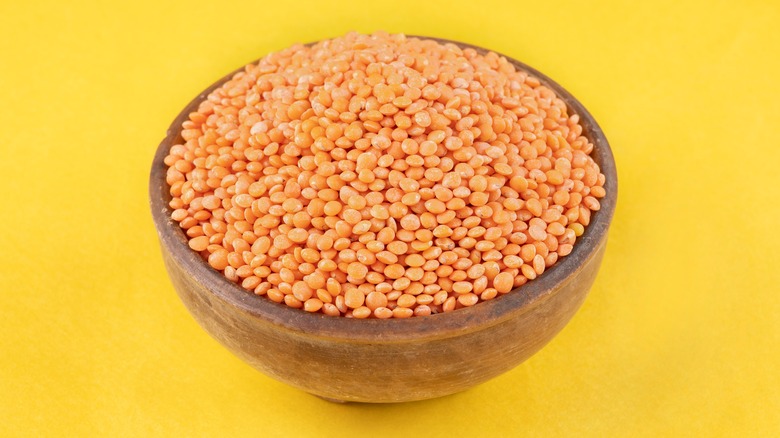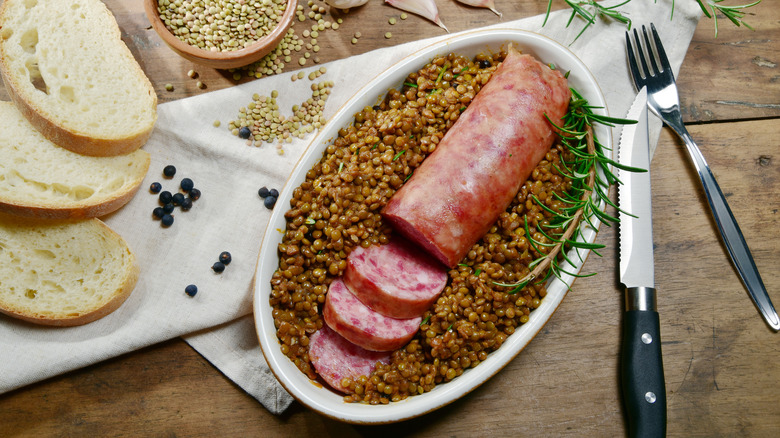Why Lentils Are Said To Be Good Luck On New Year's
It's that time of the year again — Christmas and New Year's Eve are just around the corner, waiting to be celebrated. Love them or hate them, the year's end festivities are on most people's minds as December comes to an end, and both of these festive days have their own traditions and specialty dishes that we can all enjoy.
CNN reports that there are many New Year's food traditions around the world, and most dishes eaten on the day symbolize some kind of good fortune, be it good luck, longevity, or abundance. In Spain, for instance, people eat 12 grapes at the stroke of midnight; in Mexico, people eat authentic tamales and menudo (a soup with tripe and hominy). Similarly, in Japan, the elongated buckwheat soba noodles are eaten for both longevity and prosperity.
But there's more: The Washington Post reminds us of Hoppin' John, a Southern U.S. New Year's tradition dating back to the times of slavery, which consists of pork and black-eyed peas, and History reports on pickled herring, which is traditionally eaten on New Year's Eve in Scandinavian countries, Germany, and Poland. This tradition even lives on in the U.S. states of Iowa, Minnesota, and Wisconsin. But what do the Italians eat at the stroke of midnight?
Lentils symbolize prosperity because they look like coins
On New Year's Eve, people residing in Italy usually opt for flat legumes known as lentils, which are considered a sign of good luck. These round legumes were once believed to look similar to Roman coins. And that's why they're eaten after midnight in Italy, as they symbolize prosperity in the following year. Traditionally, New Year's lentils in Italy are always served with a pork sausage called cotechino on the side. And it's no wonder why, given that pigs are also seen as symbols of good luck (via Real Simple).
The cotechino sausages are typically made with a mixture of pork, pork rinds, fat, salt, and seasonings. Interestingly enough, these sausages are protected with the IGP (Protected Geographical Indication) mark, signifying their ancient tradition (per Web Food Culture).
However, there are some foods that you shouldn't eat on New Year's because it's considered bad luck. According to Country Living, you should avoid eating lobster on New Year's Eve because it moves backward and might lead to bad luck. Regardless of the superstitions, it might be best to eat what you want on New Year's Eve while respecting tradition as much as possible. After all, life really is too short to worry about which delicious food to devour next.

